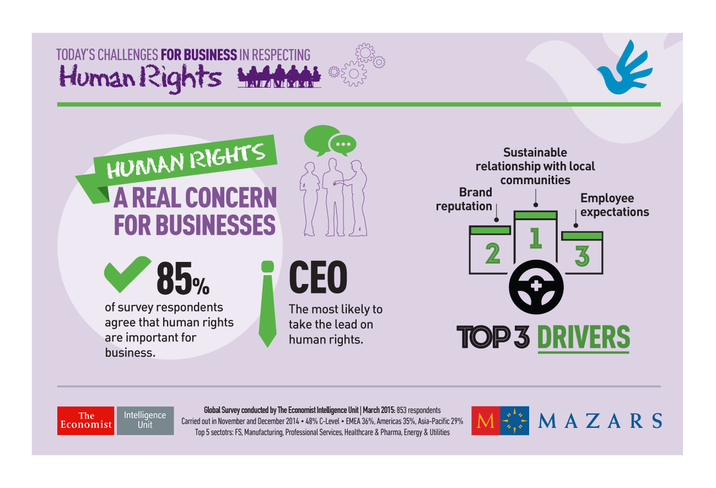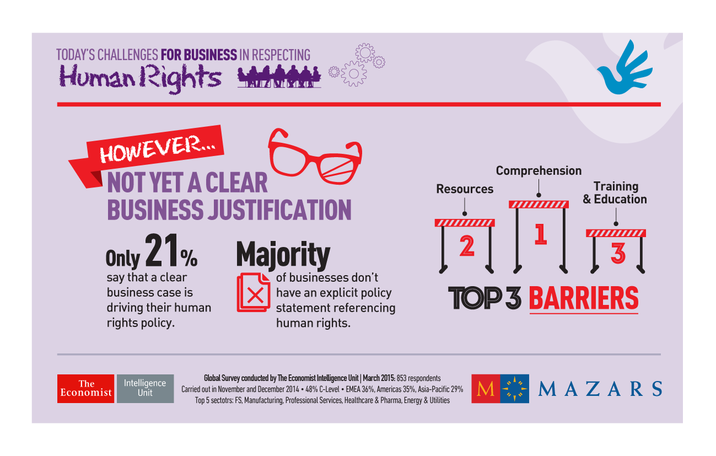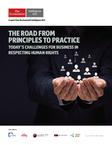Report on Human Rights and Business
The study explores the views of businesses worldwide on their responsibility to respect human rights and the ways in which these obligations are carried out. It is based on a global online survey and in-depth interviews with experts and senior executives.
It draws on two main sources for its research and findings: a global online survey of 853 senior corporate executives carried out in November and December 2014 and 9 in-depth interviews with independent experts (including specialists from Harvard, Human Rights Watch, Institute of Human Rights…) and senior executives of major companies (including Coca-Cola, UBS, Anglo American…)
Results from Our Survey on Business & Human Rights
Human Rights are now a matter for businesses
- 85% agree that Human Rights are a matter for business
- Close to a third think that making human rights reporting a mandatory requirement for companies would help them respect human rights
- Ed Potter, Director of Workplace Rights, Coca Cola: “In 2014 we adopted a consolidated human rights policy. It took 8 months in 2005 to align with the bottlers. It took 15 minutes last year.”
But concrete actions are lagging
- 17% agree that Human Rights are not a matter for business
- 79% do not see a clear business case for committing on human rights (risk-benefit analysis, competitive advantage…)
- Jan Klawitter, Government Relations Manager, Anglo American: “We have to acknowledge that big corporations need time to change. It is not an excuse for doing nothing: it is just a reality.”
The journey continues
The intersection of business and human rights has seen significant activity in the last decade. Executives have largely accepted that companies have a role in this field. It’s time now to turn thoughts into action.
As John Ruggie, former UN Secretary-General’s Special Representative for Business and Human Rights, says, “now that we have a common foundation of minimum standards and processes, the UN Guiding Principles need to be developed in a more granular way.”
Visit our Collective Intelligence blog and learn more about the report and how Mazars contributed in transforming the UN Guiding principles into a comprehensive Reporting Framework.



